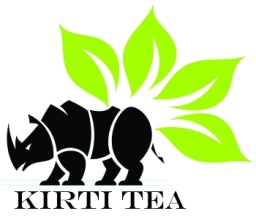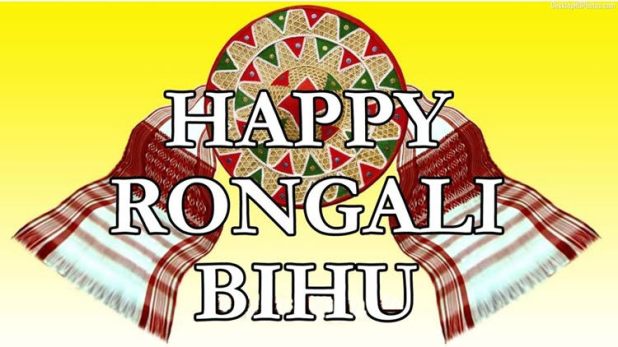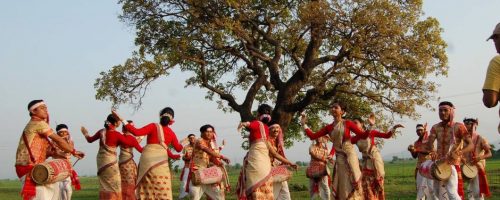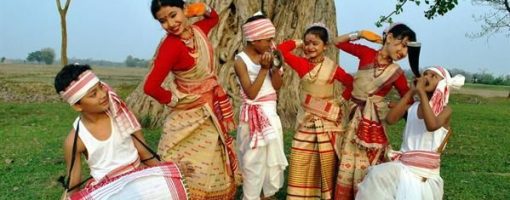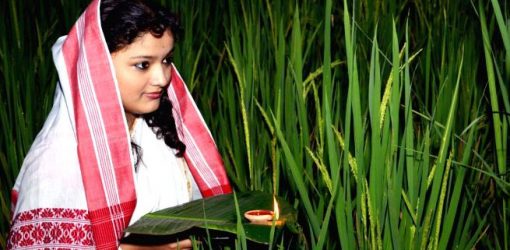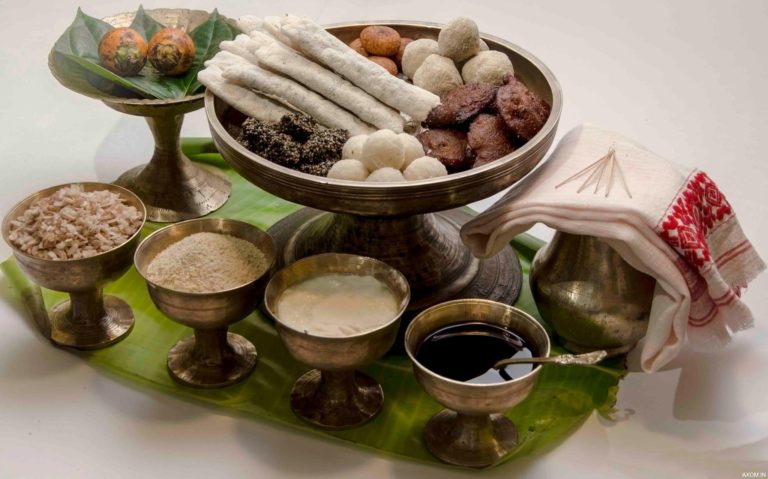Tea
HAPPY RONGALI BIHU
The Spirited Bihu Festivals of Assam
Assam is the most dynamic of the North-Eastern states of India. It’s the gateway to the rest of the ‘Seven Sister States’ of North-East India: Meghalaya, Arunachal Pradesh, Nagaland, Mizoram, Manipur, and Tripura. Located around the mighty Brahmaputra River, Assam is known for its diverse people and languages. An ancient civilisation, Assam has been inhabited by many groups of people.
The resulting mix of culture and languages, tradition and modernity, make it a mini-India. Like the rest of the north-east region, Assam too is known for its lush greenery and untouched lands. Home to more than 20 wildlife sanctuaries and forest reserves, Assam is especially renowned for the endangered One-Horned Rhinoceroses, and rare species of flora and fauna. It is also famous for its almost 800 tea gardens over thousands of hectares; Assam silks – muga, pat, and eri; the people’s hospitality; and festivals, especially Bihu.
The Bihu Festivals of Assam
The Bihu Festivals of Assam are known for their popularity throughout the country. One of the most famous events of the north-east, Bihu is a set of three agrarian festivals, celebrated through the year. Bihu is derived from the words ‘Bi’ and ‘Shu’ which mean ‘to ask’ and ‘peace’ respectively. Bihu also denotes the songs and dances performed during the events. The festivals bring together people of all demographics, with no consideration for caste or creed.
Bohag or Rongali Bihu
The biggest and merriest Bihu festival is the Bohag or Rongali Bihu (Festival of Merriment), celebrated in mid-April. It celebrates the Assamese new year and fresh cycle of farming. It’s a time for merrymaking with the community and feasting. The festival lasts for 7 days, with each having its own name and purpose. Cows are washed and worshipped on the first day. Similarly, the next day is for the people to take early baths and wear new clothes. On the third day, the deities are washed and worshipped. During this time, fields are prepared by farmers for paddy cultivation.
In every household, traditional rice and coconut dishes like jolpan, pitha, and larus are prepared. The young men, and women dressed in beautiful Assamese silk clothes, perform traditional dances and songs. It’s a time of great joy and communal harmony. The Bihu dance performed involves sensual hip and hand movements, with accompanied instruments like Dhol (drum), Baanhi, Taal, Gogona, Toka Xutuli, and Pepa. People carry the jaapi, symbol of Assam, a traditional, brightly coloured, conical hat which serves as a protective and gift item, as well as a sign of respect.
Kati or Kongali Bihu
Kati or Kongali Bihu (Festival of the Poor) is the most sober of all three Bihus. Kati Bihu is celebrated in mid-October, when the crops are growing but the farmers’ granaries are depleting. On this day lamps, called saki, are lit on the tips of bamboo poles in the fields, as a guide to spirits. Lamps are also lit in the gardens, especially under tulsi plants, and in the granaries. Farmers also chant spells to ward off negativity and pests, praying for successful harvests. Cattle is fed especially prepared items known as pitha, made of rice. It’s a time of solemn solidarity and hope for successful harvest.
Magh or Bhogali Bihu
Magh Bihu, also known as Bhogali Bihu (Festival of Food), is when a successful harvest and full granaries are celebrated. A time of joy and eating, this festival takes place in mid-January. The main activity in this festival is when the men prepare makeshift cottages and a bonfire (Meiji), while the women prepare rice dishes, among others. The night before the festival, known as Uruka, the people make merry around the bonfire as they feast and exchange gifts. The next morning, the makeshift shelter is burnt on the meiji. The rest of the day is spent visiting friends and relatives, while exchanging Bihu greetings, sweets, and food.
Bihu is a set of festivals that celebrates the very cycle of nature, and life, itself. No wonder, then, that it’s not just celebrated in Assam or by the Assamese, but by anyone who wishes to be a part of this celebration. The warmth and friendliness of Bihu is what makes it one of the most loved and enjoyed festivals in India.
